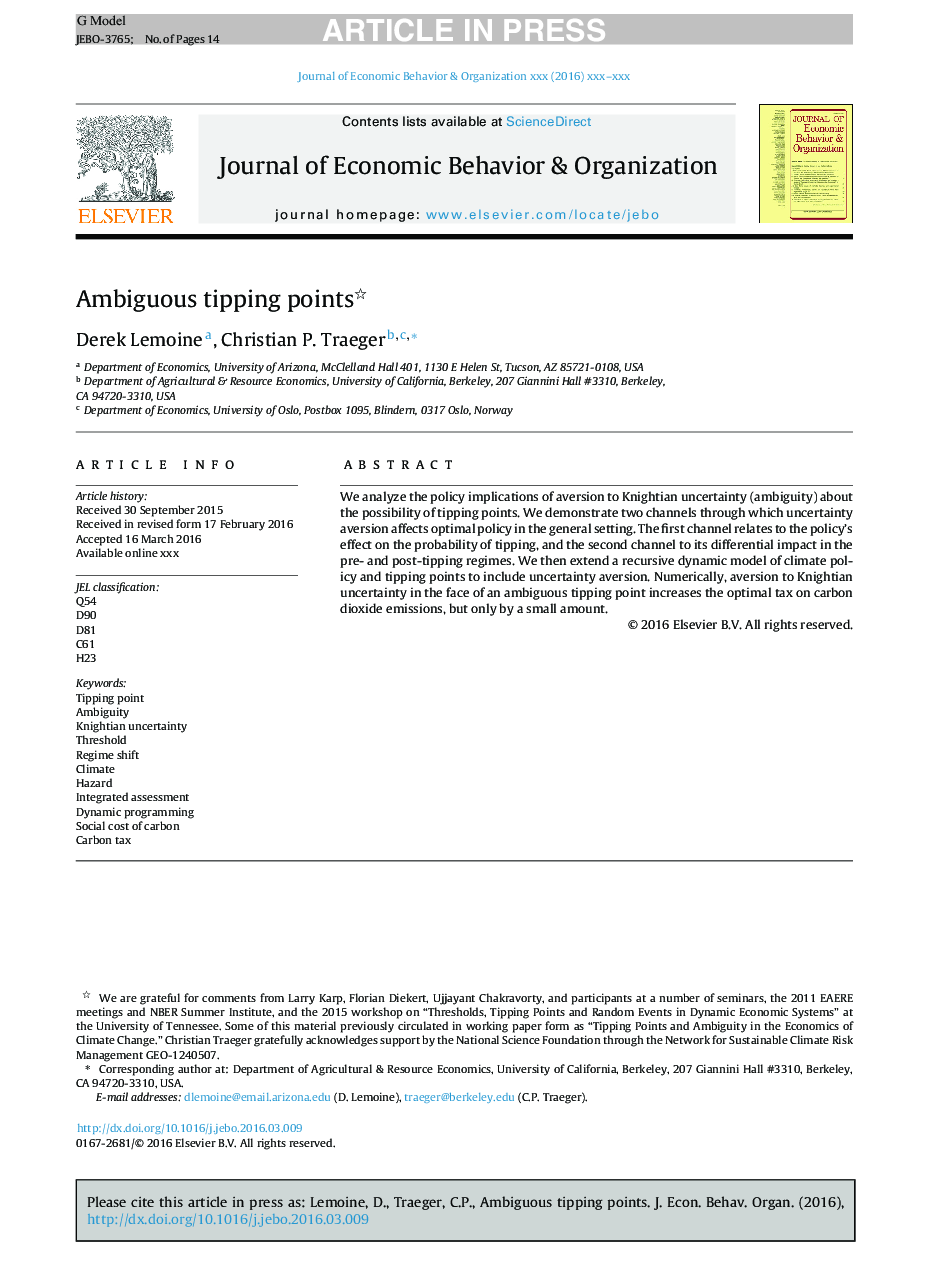| Article ID | Journal | Published Year | Pages | File Type |
|---|---|---|---|---|
| 5034623 | Journal of Economic Behavior & Organization | 2016 | 14 Pages |
Abstract
We analyze the policy implications of aversion to Knightian uncertainty (ambiguity) about the possibility of tipping points. We demonstrate two channels through which uncertainty aversion affects optimal policy in the general setting. The first channel relates to the policy's effect on the probability of tipping, and the second channel to its differential impact in the pre- and post-tipping regimes. We then extend a recursive dynamic model of climate policy and tipping points to include uncertainty aversion. Numerically, aversion to Knightian uncertainty in the face of an ambiguous tipping point increases the optimal tax on carbon dioxide emissions, but only by a small amount.
Keywords
Related Topics
Social Sciences and Humanities
Economics, Econometrics and Finance
Economics and Econometrics
Authors
Derek Lemoine, Christian P. Traeger,
